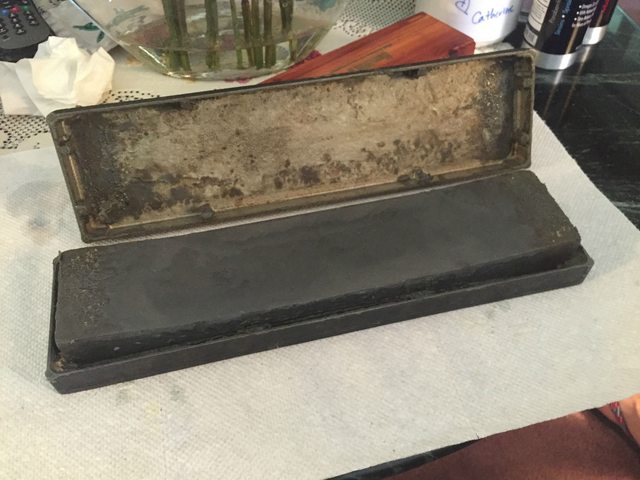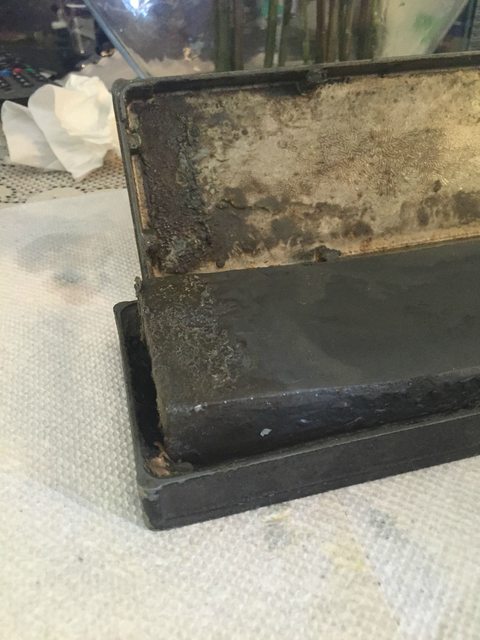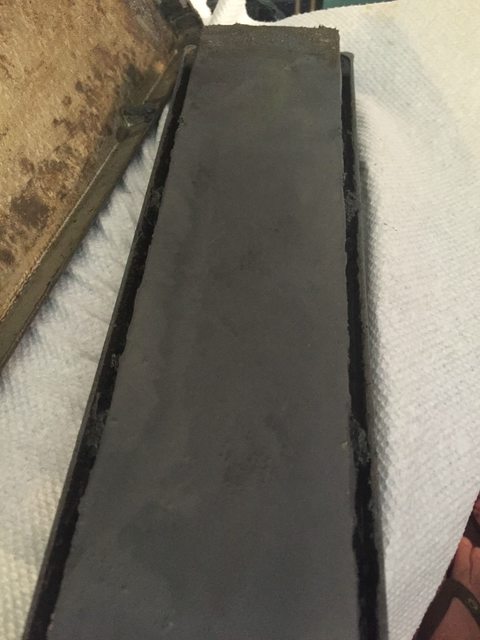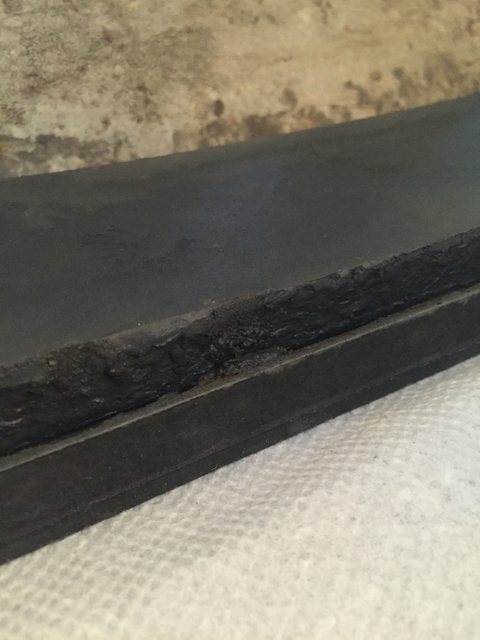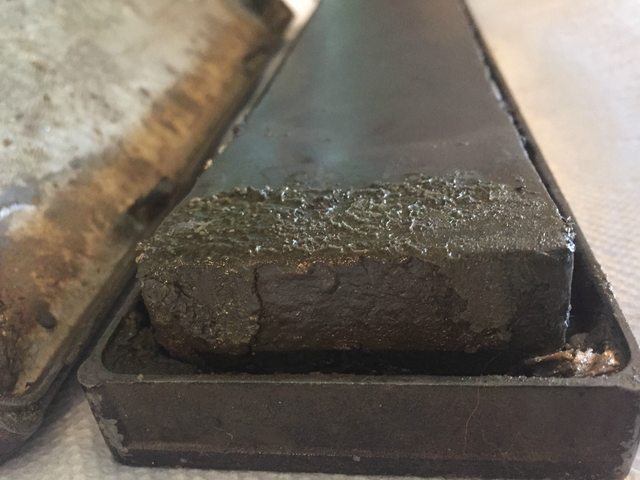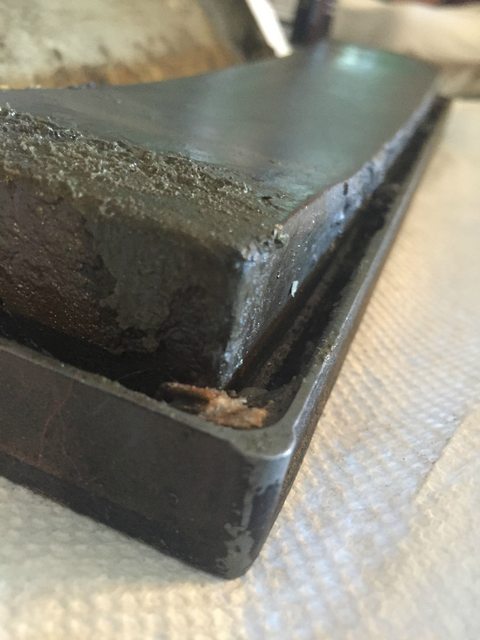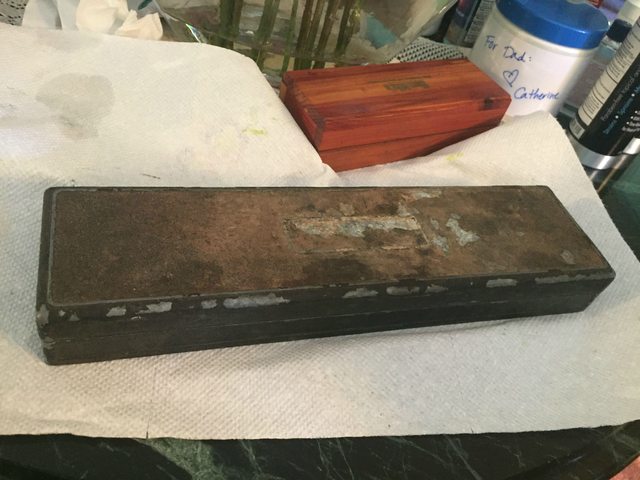RunLikeAnAntelope
Member
- Joined
- May 28, 2014
- Messages
- 6
- Reaction score
- 0
My girlfriend's father (85 yo) showed us the stone he inherited from his father and has been using to sharpen his knives with all his life. And he has always used motor oil to sharpen with!! :Ooooh: ...as you will be able to see. This is a super old stone. Anyone have any idea what it would have been made of?
